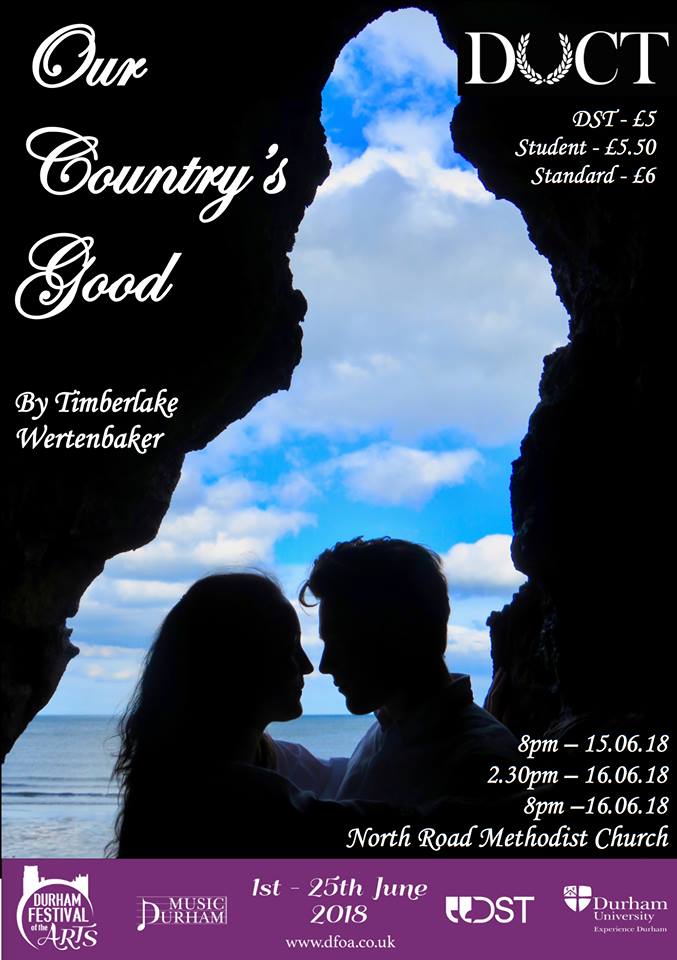“Theatre is an expression of civilization” – a line, and a concept, emphasised fairly early on in the play and something that was palpable throughout. There can be no doubt that in using Our Country’s Good by Timberlake Wertenbaker, director Jess Frieze had the opportunity to really depict the ugly face of British colonisation, something she succeeded in doing triumphantly. She depicted its intention well: the idea that doing, not watching, can change lives and characters of those who may at first be seen as absolutely hopeless.
This thrilling performance is set in the North Road Methodist Church. The controversial themes of the “play set in 1788 about putting on another play in Australian camp” are introduced, and the controversy felt, from the very beginning. As the audience entered, the cast was already present on the stage. Despite the atmospheric music played prior the performance, the cruelty of the opening scene still came as a shock to the audience.
In comparison to other productions, this one is completely stripped back of all the unnecessary details; the very clever use of the space, music and projectors really transformed the stage within a matter of seconds. Absence of anything that could divert attention even for a moment really encourages the viewer to concentrate on the main theme of the play – human connection – acting to emphasise in turn that we are all the same underneath. The only thing utilised to show the difference between convicts and officers was a red neck-tie. The choice of red as a statement colour was not an accident – it served as a constant reminder of the threat of hanging, death – something that felt conspicuously present throughout the play. It is worth nothing that at the end of the play, all the convicts and the officers receive a red neck tie, the implications heavy. This minimalism of a bleak set and minimum costume really leaves the actors quite exposed, and the focus really is on the relationships in the play and on the dynamics of the performance. It should be noted, however, that the pacing of some scenes was a bit on the slow side – something unfortunately evident when the actors were the sole focus.
The doubling of the actors brought another pleasant twist, and added depth, to the story. One of the most striking, heartfelt performances was by Joe Pape – who portrayed both Major Robbie Ross and Ketch Freeman – strikingly different characters with different accents and completely different personalities. It was evident that this was done partially on purpose to emphasise the fact that characters had to be doubled in the play too, and as a result worked very well. Most characters had to play a convict and an officer at some point during the production and once more the emphasis was placed on the leitmotiv of the play – we are all the same underneath. It was clear that the cast was casted absolutely brilliantly, and an understanding of character was thoroughly demonstrated by the way in which they carried themselves on stage.
Megan Dunnico, who portrayed Liz Morden and Reverend Johnson, was absolutely breathtaking. Her ability to bring humanity to a character so violent and so uncaring, reflected the depth and the sharpness of Dunnico’s portrayal. The fact that she managed to bring some lightness to the character through comedy was most impressive.
The soundtrack closing the play was by Nancy Sinatra. It supported the end of the play that reflected upon the future of the characters and served to really help the audience understand the true effect that theatre had on the convicts throughout the play: its ability to provide a voice for those who couldn’t speak.
Durham Festival of the Arts

